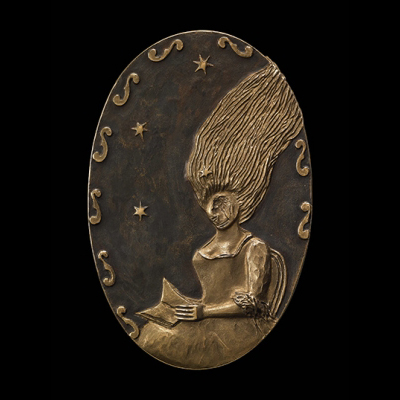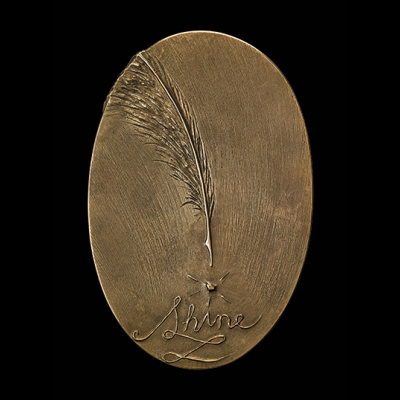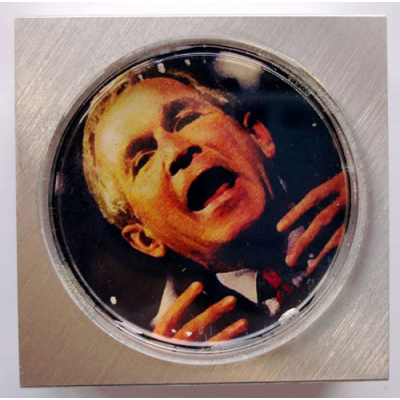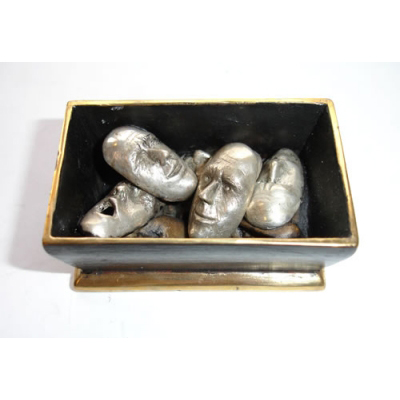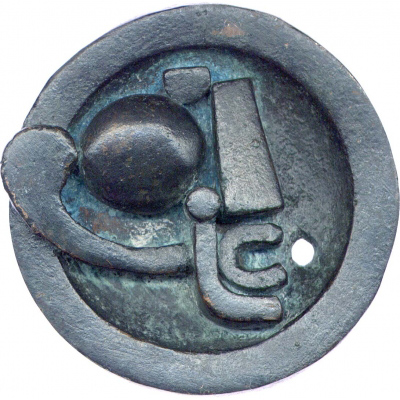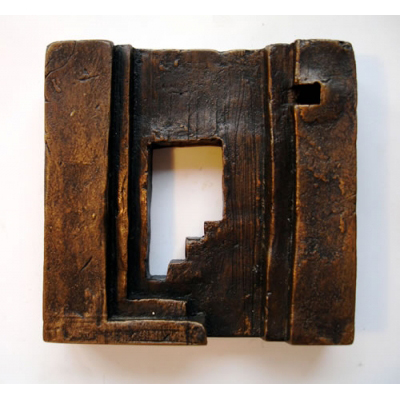An Ornament to a Muse: Mrs Montagu by Heidi Hinder (b. 1976) celebrates Elizabeth Montagu and the women of the Bluestocking Society, a mid-eighteenth century group of progressive and predominantly female writers and intellectuals who championed women’s education and gave voice to social complaints. As Hinder writes in this issue (see p. 52), the title of the medal is ambiguous, for the term ‘ornament’ is suggestive of the eliding patronisation that denied this generation of women full recognition while paying superficial respect to their achievements.
Hinder’s medal is a strong haptic presence in the hand. Even before the medal is teased from its own Wedgwood-blue silk ‘stocking’ it is clear that this is a relatively heavy object, the lightness of the silk and the comparative density of the bronze forming a counterpoint that can be regarded as an interpretative route into the object. The weight of the medal and the dark patination of its field may remind the viewer of the source of Mrs Montagu’s wealth, which was derived from mining. But everything else about the medal suggests physical sublimation and lightness. Mrs Montagu’s hand ‘forks’ at the pages of a book, apparently heedless of baser sustenance; her hair flows upwards in defiance of gravity; while the polished bronze highlights gleam from the darker bronze field of the medal, with smaller stars and shining ‘f’ stops glittering against a heavy firmament. Her face is an image of a cameo, a portrait of a portrait, perhaps a somewhat etiolating form of self-improvement through the agency of art. The message of the obverse is unclear. Is Hinder taking a critical view of the achievements of the Bluestockings, suggesting, perhaps, that they were evanescent and insubstantial? Or is the imagery a reflection of the double-edged honorific, “an ornament to her sex and country”, by which Mrs Montagu was described in her obituary? It should be noted that the shape of the medal calls to mind a bar of soap or an oval brooch, thereby evoking a sense of female vanity but equally the pervasive gender stereotyping that arguably still limits the scope of many women’s lives. Any such ambiguity is dispelled by the clear message of the reverse. As Hinder wrote in her proposal for the medal, ‘The ore of the letter “i” in the word “Shine” is a call to the “I” of the individual; to uphold the beacon illuminated by Mrs Montagu and the Bluestocking Society, to pioneer and to shine.’
Hinder was BAMS New Medallist in 2010-11 and is a graduate of Birmingham City University’s School of Jewellery. She has work in the British Museum, Victoria and Albert Museum, Birmingham City Art Gallery, Worshipful Company of Goldsmiths and Royal Society of Arts.
